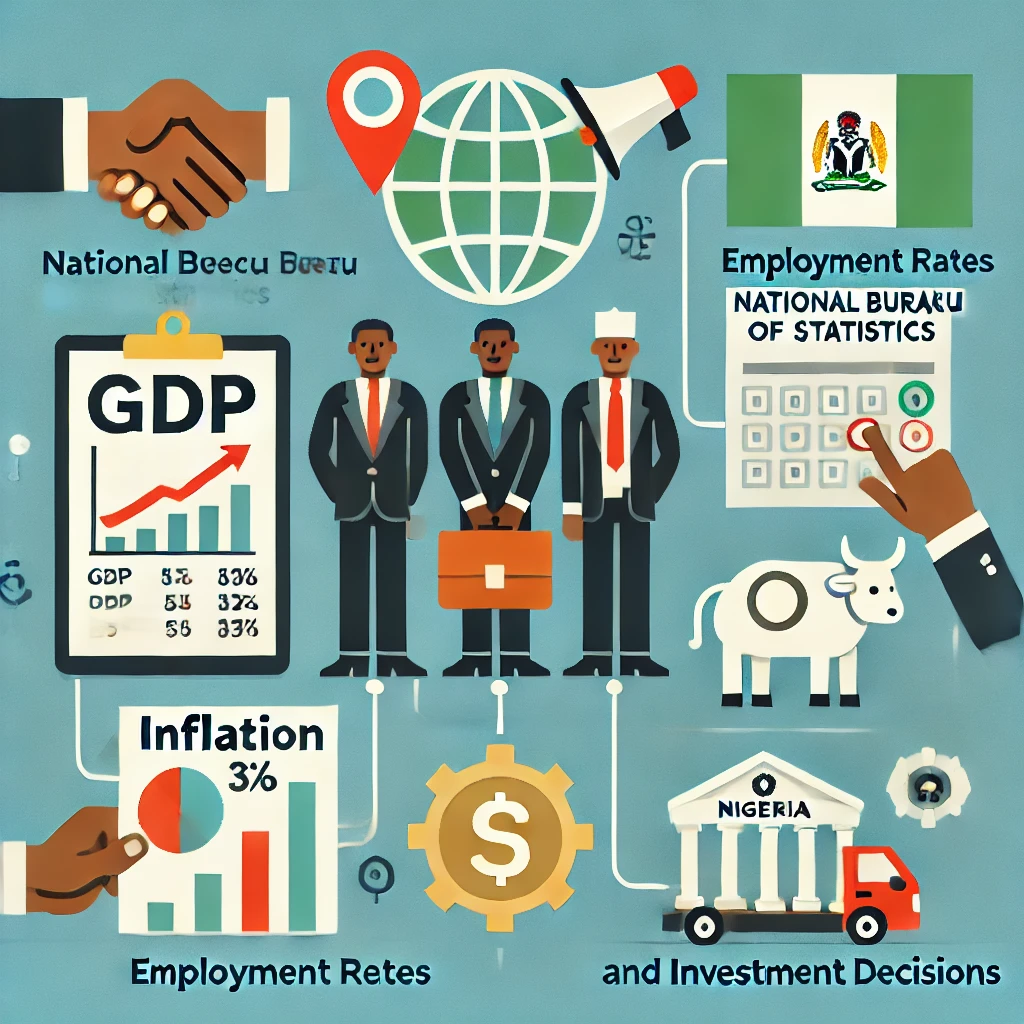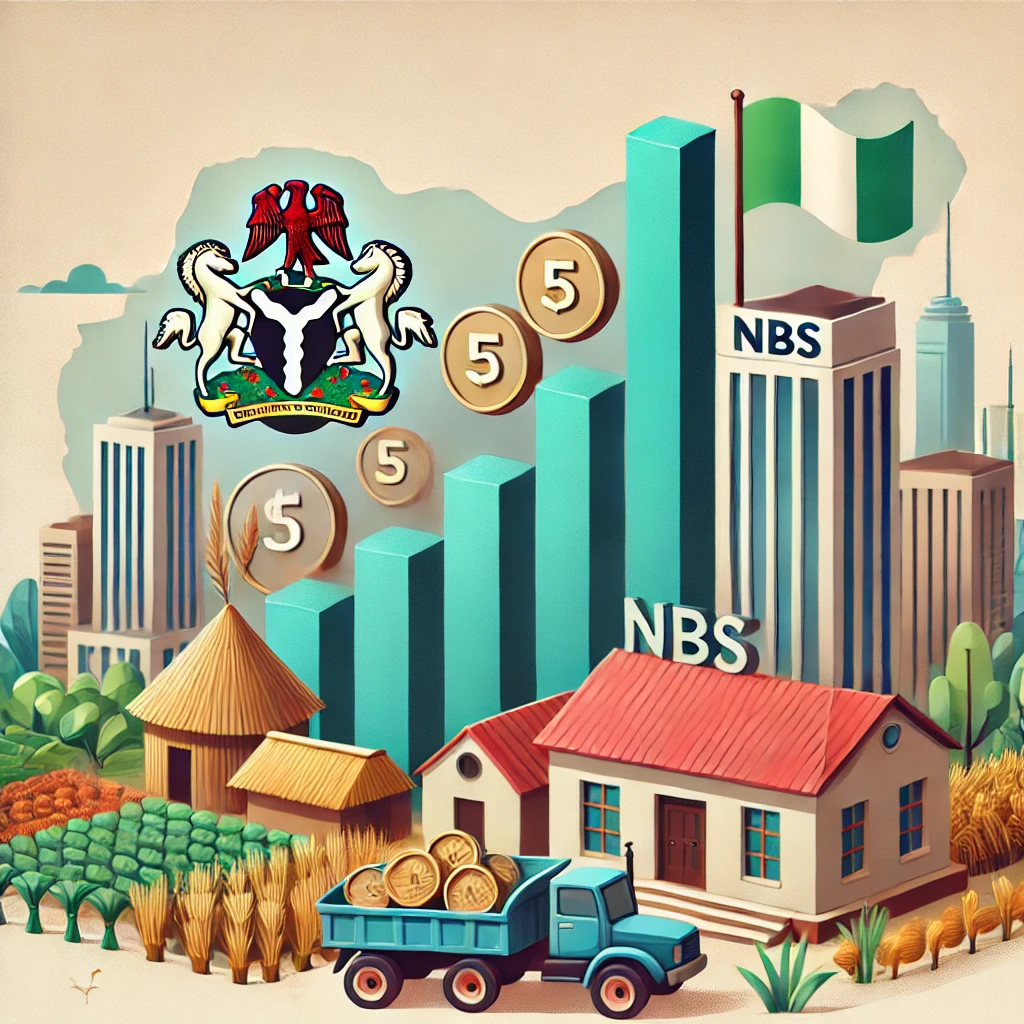The National Bureau of Statistics (NBS) is very important in Nigeria. It helps the government and people understand the economy. The NBS collects, analyzes, and shares data about different parts of the country. This information is used to make decisions that help Nigeria grow and develop. In this article, we will talk about the role of NBS in Nigeria’s economic planning and policy formulation.
What is the NBS?
The NBS, or National Bureau of Statistics, is the government office in Nigeria responsible for gathering and reporting data. It provides information on many topics, including population, agriculture, education, health, and the economy. This data helps leaders and businesses make informed choices.
Why is NBS Important?
NBS plays a big role in Nigeria’s development. Without accurate data, the government cannot make good decisions. The NBS provides reports that show how the country is doing in different areas. This helps leaders create policies that improve people’s lives. For example, if NBS data shows that food prices are rising, the government can take action to help people afford food.
How NBS Helps in Economic Planning

Economic planning means making plans to grow a country’s economy. The government needs to know what is happening in different industries, like farming, trade, and manufacturing. The NBS collects information on these areas and helps the government decide where to invest money and resources. Here are some ways NBS helps with economic planning:

- Providing Data on GDP: The Gross Domestic Product (GDP) is the total value of goods and services produced in a country. The NBS calculates Nigeria’s GDP and shows whether the economy is growing or shrinking. If the GDP is low, the government can create programs to boost the economy.
- Tracking Employment Rates: NBS reports how many people have jobs and how many are unemployed. This helps the government create job opportunities and reduce poverty.
- Monitoring Inflation: Inflation means prices of goods and services are rising. If inflation is too high, it becomes difficult for people to afford basic needs. The NBS tracks inflation and helps the government take action to control it.
- Guiding Investment Decisions: Businesses and investors look at NBS data before making investments. If a company wants to open a new factory, it will check NBS reports to see if the location is good for business.
How NBS Helps in Policy Formulation

Policy formulation means creating rules and laws to improve the country. The government uses NBS data to make policies that solve economic problems. Some important ways (NBS) National Burea of Statistics helps in policy-making include:
- Creating Social Programs: The NBS collects data on poverty and living conditions. If many people in a region are poor, the government can start programs to help them, such as free education or food support.
- Improving Agriculture: Agriculture is important for Nigeria’s economy. The NBS collects data on crop production, rainfall, and food prices. This helps the government support farmers and ensure enough food for the country.
- Planning Infrastructure Projects: Roads, schools, and hospitals are important for development. The NBS provides data on where these services are needed the most. This helps the government build projects in the right places.
- Supporting Education and Health Policies: The NBS collects information on school attendance and healthcare access. If many children are not going to school, the government can create programs to improve education. If people are not getting good healthcare, new hospitals can be built.
Challenges Faced by NBS
Even though the NBS is very important, it faces some challenges:
- Lack of Funding: The NBS needs money to collect and analyze data. Sometimes, it does not get enough funds from the government.
- Limited Technology: Collecting data requires modern tools and computers. The NBS needs better technology to improve its work.
- Data Accuracy Issues: Some people do not give correct information when NBS collects data. This makes it difficult to get accurate reports.
- Security Challenges: In some parts of Nigeria, it is dangerous to collect data because of insecurity. This affects the quality of reports.
How to Improve NBS

To make NBS better, the government and other organizations need to help. Some ways to improve NBS include:
- Providing More Funds: The government should give more money to NBS to help it collect and analyze data properly.
- Using Modern Technology: NBS should use better computers and software to process data quickly and accurately.
- Training Workers: Staff should be trained to collect and analyze data better.
- Ensuring Security: The government should provide security to NBS workers, especially in risky areas.
You May Also Like: Safeguarding Nigeria’s Future: The Vital Role of Digital Data and Data Security in 2025
The National Bureau of Statistics (NBS) is very important for Nigeria’s economic planning and policy formulation. It provides data that helps the government and businesses make informed decisions. Without NBS, it would be difficult to plan for the future. Even though it faces some challenges, improving NBS will help Nigeria grow and develop. Everyone, including the government and citizens, should support NBS to ensure a better future for Nigeria.

Leave a Reply
You must be logged in to post a comment.